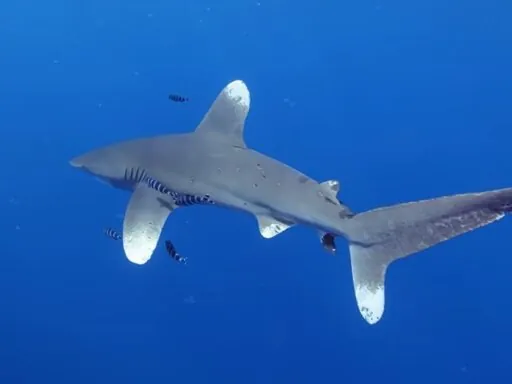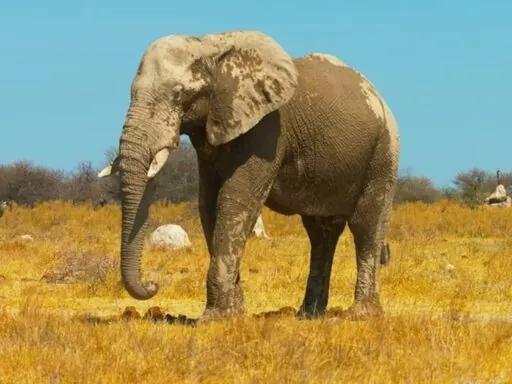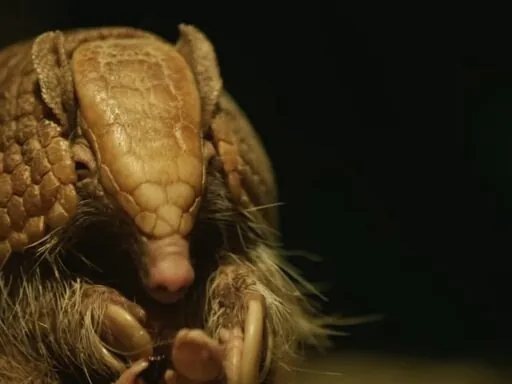Hey there, have you ever wondered about the intelligence of animals? While some animals amaze us with their problem-solving skills and clever behaviors, others might not be winning any awards for smarts. In the vast tapestry of the animal kingdom, intelligence comes in all shapes and sizes. From creatures with no brains to those with simple behaviors, join us as we explore the fascinating world of the top 10 least intelligent animals that often find themselves at the bottom of the class when it comes to intelligence.
1. Jellyfish
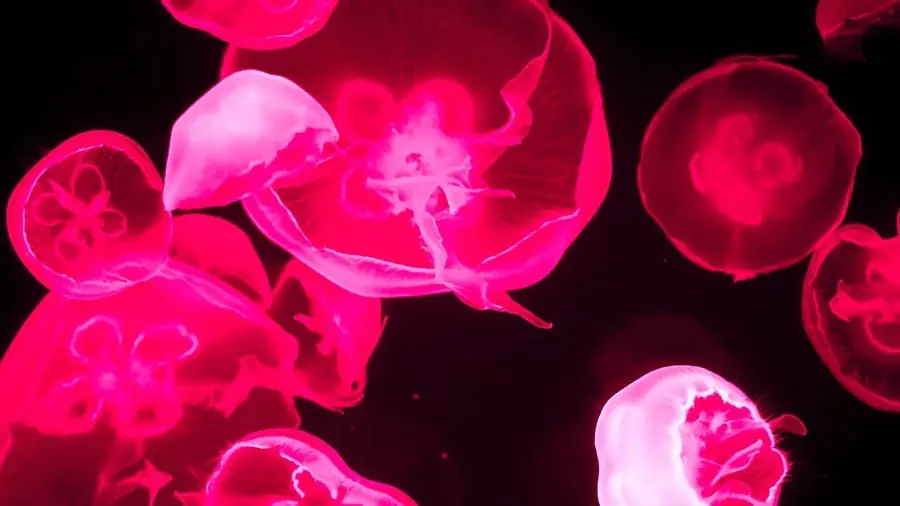
Picture a pulsating, translucent blob drifting through the ocean. That’s basically a jellyfish! Now, these guys are amazing survivors, but when it comes to smarts, they’re pretty low on the totem pole. They don’t have brains or even real nervous systems! They just kinda drift around, stinging anything that brushes against their dangling tentacles to zap lunch. Basically, they’re like living swimming bells with a side hustle of being tiny shockers. Not exactly rocket scientists, but hey, they’ve been around for millions of years, so who are we to judge?
2. Sea Sponge
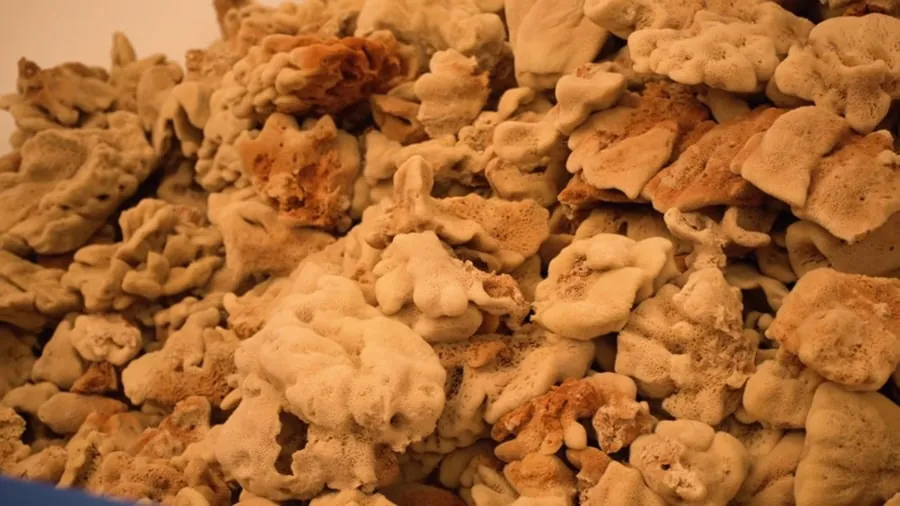
Next up, we have the sea sponge – one of the dumbest animals in the world. If you thought jellyfish were simple, wait until you hear about these guys! Sea sponges are among the simplest multicellular animals on the planet. In fact, they’re so simple that they don’t even have organs, including a brain. Instead, they rely on a basic system of pores and channels to circulate water and filter out nutrients. Despite their lack of complexity, sea sponges play a crucial role in marine ecosystems, providing habitat and food for many other sea creatures.
3. Sea Cucumber
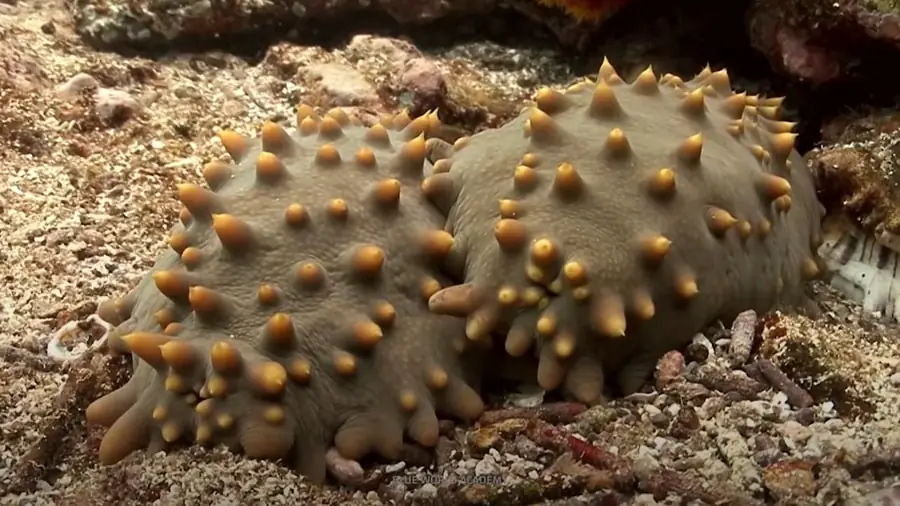
These slowpokes are the vacuum cleaners of the deep. They don’t have much of a brain and rely on tiny tentacles to sift through the sand, sucking up bits of food and detritus. If a predator comes along, they might try to scare it off with a cloud of sticky goo, or in a real panic, they can actually eject their entire gut! Talk about leaving your opponent speechless (or should we say gutless?). Not exactly Mensa material, but hey, they keep the ocean floor tidy and even have some self-defense tricks up their, well, not-so-sleeves.
4. Sloth
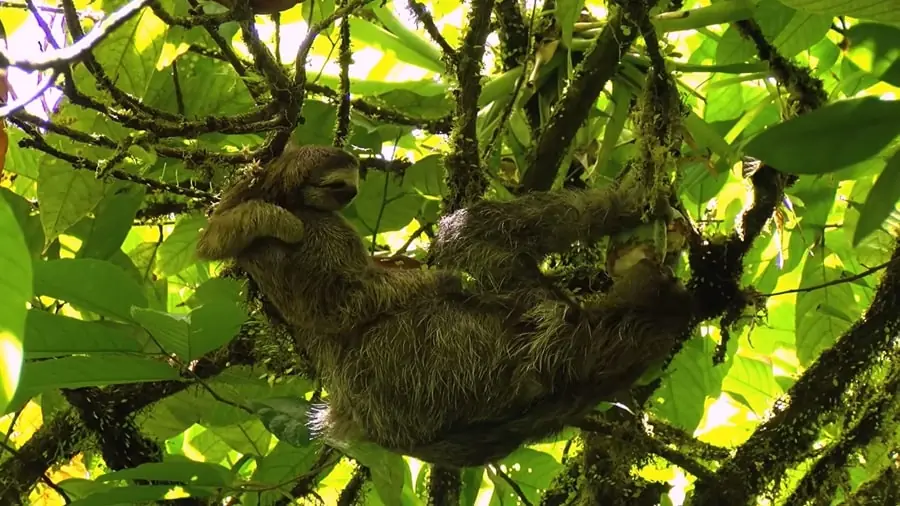
Hold on, sloths might not deserve a spot on the “dumb animal” list! They’ve gotten a reputation for being slow and lazy, but that’s more about energy conservation than a lack of brains. In fact, recent research suggests their brains are wired for survival in their rainforest environment, not complex problem-solving – the reason why they’ve been ranked among the top 10 least intelligent animals list. They’ve got a great memory for navigating the trees and can even use tools (like twigs) to scratch themselves. So, while they might take their sweet time doing anything, sloths are probably a bit smarter than we give them credit for. Maybe they’re just the ultimate chill masters!
5. Koala
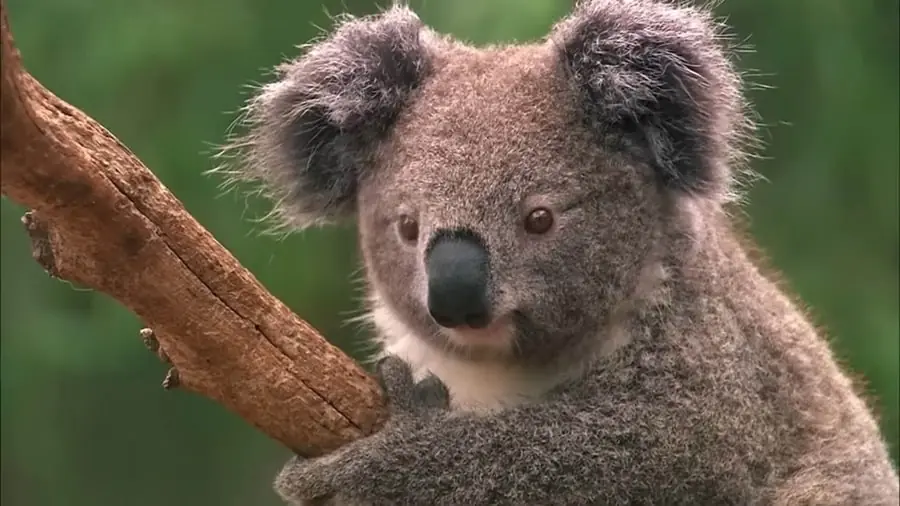
Ah, the koala. Those adorable balls of fur clinging to eucalyptus trees! Here’s the thing: koalas are cute, cuddly, and hold a special place in our hearts. But when it comes to brainpower, they might not be winning any awards. Koalas have the smallest brain-to-body ratio of any mammal (except maybe a sloth, but we’ll give them a break). Their brains are smooth, lacking the wrinkles that allow for complex thinking in other creatures.
Plus, their diet of eucalyptus leaves is pretty low in nutrients, which doesn’t exactly fuel a powerhouse intellect. They spend most of their days snoozing and munching on leaves, not exactly solving Rubik’s cubes. So, while undeniably huggable, koalas might be a case of beauty before brains. But hey, surviving on a diet of eucalyptus leaves and napping all day isn’t the worst way to live!
6. Opossum
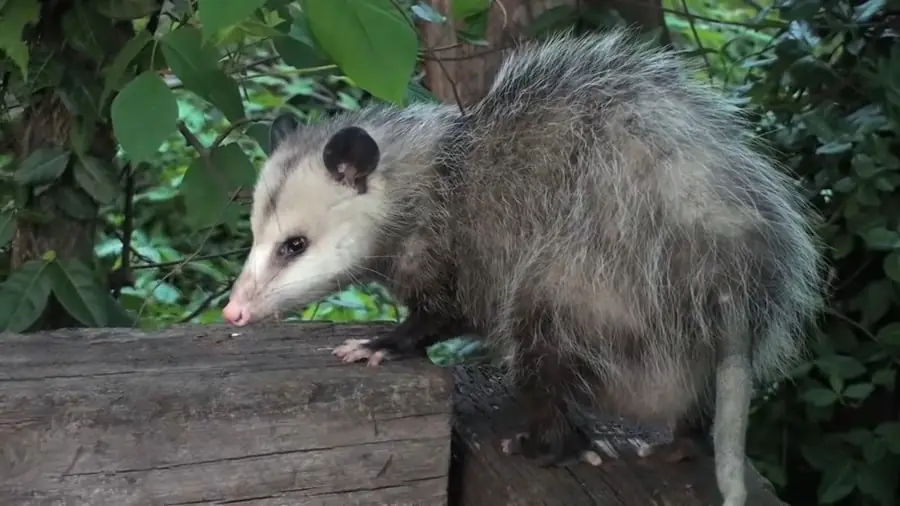
Opossums! Those hiss-happy, lightning-fast playing-dead champions. Here’s the deal: opossums get a bad rap for being dumb because of their whole “fainting” act. But that’s actually a clever survival tactic to avoid predators! The truth is, opossums surprise scientists with their intelligence. Their brains are small, sure, but they outperform animals like cats and rats in maze tests and can even remember smells for a whole year!
They’re resourceful critters, using their opposable thumbs to open containers and their excellent climbing skills to navigate their environment. So, while their “playing dead” trick might seem goofy, opossums are actually adaptable and surprisingly intelligent survivors. They might not be Einsteins, but they’re definitely not the dimwits they’re sometimes portrayed as.
7. Turkey
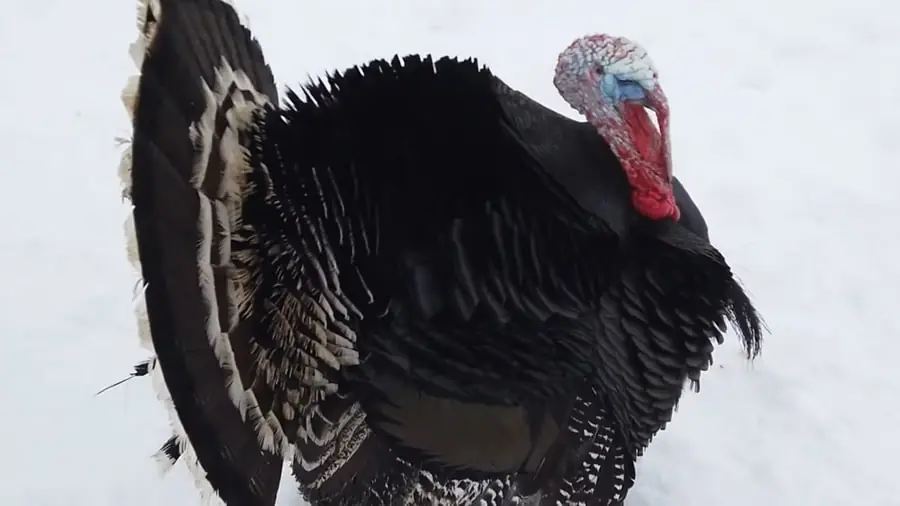
Now, let’s talk turkey… literally! Turkeys, with their distinctive gobble and impressive plumage, might not be topping any intelligence charts. These birds have relatively small brains compared to their body size, and their behaviors tend to be more instinctual than thoughtful. In the wild, turkeys spend their days foraging for food and keeping an eye out for predators, relying on basic survival instincts rather than complex problem-solving skills. While they might not be the brightest sparks in the animal kingdom, turkeys still manage to strut their stuff and carve out their place in the natural world.
8. Giant Panda
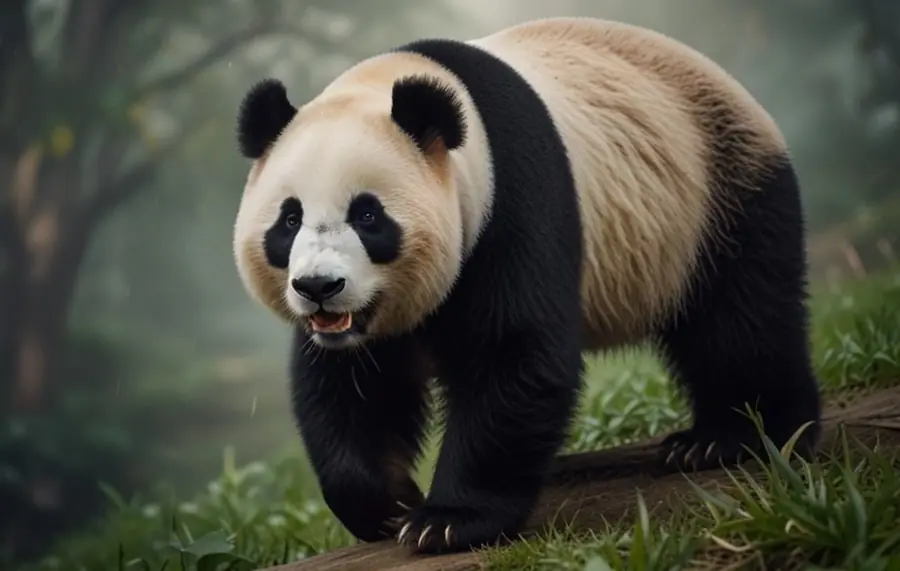
Forget chess-playing chimps, koalas are the ultimate chill masters, but not necessarily the brightest bulbs in the forest. These eucalyptus-loving fluffballs hold the record for the smallest brain-to-body ratio of any mammal (except maybe sloths, but we’ll give them a break). Their smooth brains lack the wrinkles associated with complex thought in other creatures.
Plus, their diet is a real brain drain – eucalyptus leaves are low in nutrients, not exactly fuel for a powerhouse intellect. Koalas, one of the top 10 least intelligent animals, spend most of their days snoozing and munching, not exactly Mensa material. So, while undeniably adorable, koalas might be a case of ultimate relaxation over high IQ. But hey, who needs smarts when you’ve got the perfect nap spot and a never-ending supply of leaves?
9. Pigeon
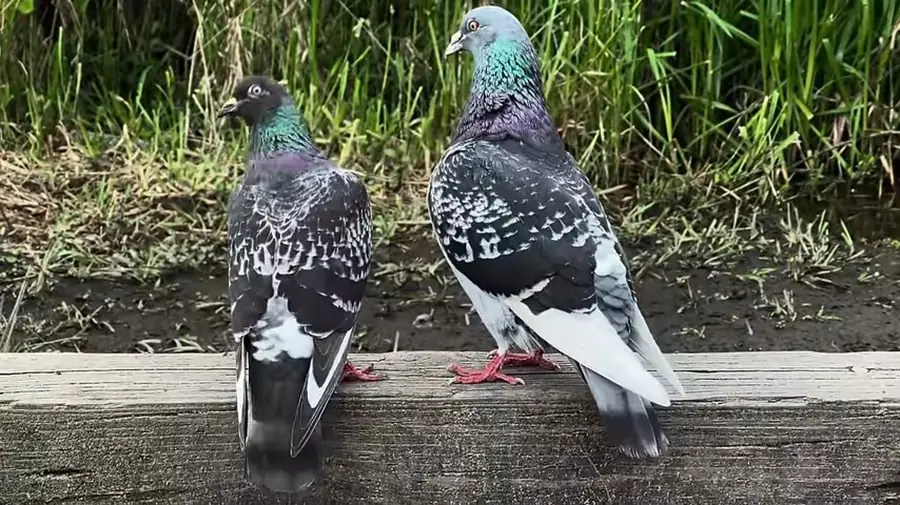
These cooing, gray-feathered city dwellers might peck away at your fries, but don’t underestimate their navigational skills. While they might not be winning any avian Einsteins awards, pigeons have surprised scientists with some hidden talents. However, complex problem-solving seems to be a challenge. They can recognize individual humans and even differentiate between Picasso and Monet paintings, but figuring out a tricky puzzle box?
Not so much. Their strengths lie in memory and spatial awareness, allowing them to navigate for miles using the sun and magnetic fields. So, pigeons might not be intellectual powerhouses, but they’re definitely not mindless cooers either. They’ve mastered the art of survival in the concrete jungle, even if that means outsmarting you for a stray french fry.
10. Goldfish
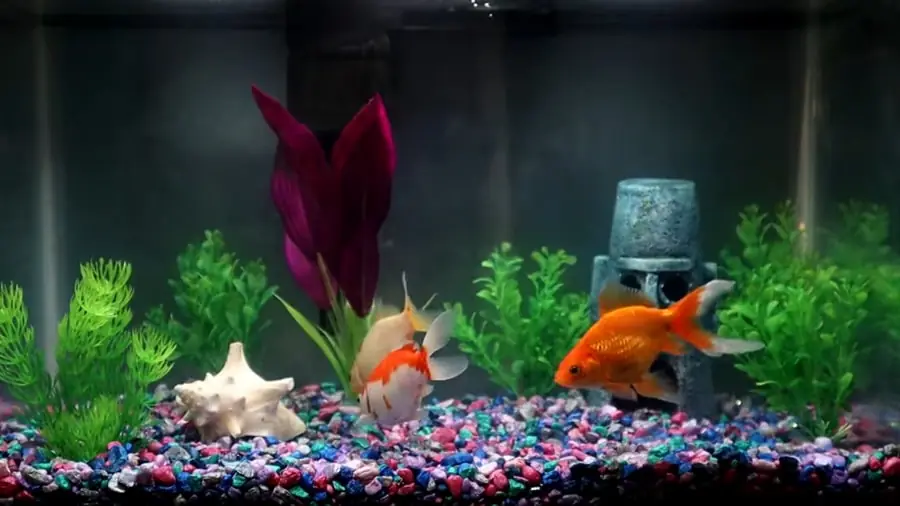
Ah, the humble goldfish, a classic choice for many first-time pet owners. While these shimmering fish might look impressive in their bowls, their intelligence might not blow you out of the water. Goldfish have relatively simple brains compared to other fish species, and their cognitive abilities are limited. Despite popular belief, goldfish do have a memory span longer than a few seconds, but they’re not exactly winning any Nobel prizes for problem-solving. However, their simplicity is part of their charm, making them a beloved addition to many households around the world.
While this list of top 10 least intelligent animals has explored some creatures with simpler nervous systems and more instinct-driven behaviors, it’s important to remember that intelligence in the animal kingdom is a complex topic. These rankings shouldn’t be seen as a definitive measure of an animal’s worth. Even the least intelligent animals have adapted and thrived in their environments for millions of years.
Scientists are constantly learning more about animal behavior, and what might seem like a simple reflex could be a sophisticated adaptation. The real takeaway is the incredible diversity of life on Earth, where survival comes in many forms, from complex problem-solving to remarkable instinctual strategies.
